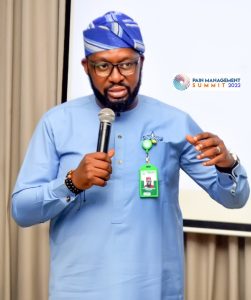Nigeria’s healthcare system is hemorrhaging—not from a lack of trained professionals or a deficit in talent but from the deliberate and systemic betrayal of the very people who have sworn to preserve life. At the heart of this crisis lies a toxic culture of casualization and victimization of medical doctors by government institutions and their enablers. These twin evils have not only eroded the dignity of medical practice in Nigeria but have also become major push factors behind the massive brain drain of doctors fleeing the country in droves.
The exodus of Nigerian doctors to countries like the United Kingdom, Canada, Australia, and Saudi Arabia is no longer news—it is a full-blown national emergency. And while government officials continue to regurgitate empty platitudes and concoct cosmetic solutions, the root causes remain firmly unaddressed.
The elephant in the room is clear: Nigerian doctors are being exploited, dehumanized, and disrespected by a system that thrives on their silence and resilience. But the silence has broken, and the resilience has frayed.
Casualization: A Systemic Assault on Medical Dignity
Casualization refers to employing professionals on temporary or contract bases without job security, benefits, or career progression. In Nigeria, this has become the norm rather than the exception for medical doctors, particularly in state-owned hospitals and teaching institutions.
Young doctors are hired as a locum or contract staff with no pension, no health insurance (ironically), and salaries that are slashed arbitrarily. Many work under this exploitative arrangement for years, with no hope of confirmation or permanent employment. These doctors are treated like expendable tools—recruited when needed and discarded without explanation.
How can a government that claims to value healthcare allow such inhumane conditions to persist? How can a system demand excellence from doctors while offering them crumbs and chaos in return? The message is loud and clear: Nigerian doctors are not valued by their government.
Victimization: Punishing the Patriotic
As if casualization is not damaging enough, Nigerian doctors also face a cruel culture of victimization when they speak up or demand better conditions. Whistleblowers are tagged “troublemakers.” Union leaders are harassed, suspended, or transferred without cause. Doctors who participate in legitimate industrial actions are often blacklisted, and their salaries withheld for months.
In many teaching hospitals, resident doctors are treated like slaves—overworked, underpaid, and subjected to the whims of vindictive supervisors. Promotions are politicized. Disciplinary actions are wielded like weapons. And when doctors dare to push back, they are punished with punitive postings or, worse still, summary dismissals.
This climate of fear and oppression breeds despair. It tells Nigerian doctors that competence, dedication, and service mean nothing unless they toe the line and remain subservient to a corrupt and complacent system.
The Consequence: A Healthcare System in Collapse
The direct consequence of this systematic abuse is the mass emigration of Nigerian doctors. According to the Nigerian Medical Association (NMA) over 2,000 doctors leave Nigeria annually. The UK’s General Medical Council (GMC) database shows that over 12,000 Nigerian-trained doctors are currently practicing in the UK. The scary number continues to rise every month.
These are not average professionals—they are some of the most brilliant, committed, and experienced medical minds in the country. They leave not because they hate Nigeria but because Nigeria has made it impossible for them to thrive. They leave because they are tired of being treated like beggars in a profession that demands nothing short of nobility.
This brain drain is not just a loss for the medical community—it is a death sentence for millions of Nigerians who rely on public hospitals. Rural areas are worst hit by this government-induced disaster. It is troubling to imagine an entire local government having no resident doctors in the 21st century. Emergency response times have worsened. Mortality rates are increasing. And still, the government remains unfazed.
Government’s Role: Complicity and Cowardice
The Nigerian government cannot feign ignorance. It is not unaware—it is complicit. The casualization of doctors is often initiated and perpetuated by government agencies. The victimization of union leaders is backed by government silence. The abysmally low health budget allocation year after year reflects a leadership that is indifferent to the plight of healthcare workers.
Instead of addressing these injustices, government officials are focused on blaming doctors for going abroad. Recently, there have even been ludicrous calls to bond doctors for years after graduation, essentially turning them into state property. What a perverse irony! A government that offers no security, no dignity, no future—now wants to enslave doctors through coercive laws.
This isn’t patriotism. It’s hypocrisy at its highest. You cannot demand loyalty from a workforce you continuously abuse. You cannot expect retention in a system built on repression.
What Must Change
To halt the brain drain and restore sanity to the healthcare sector, the Nigerian government must take immediate and radical action:
- End Casualization: All doctors working in public hospitals must be given permanent and pensionable employment after a clearly defined probation period. Temporary contracts must not exceed one year.
- Guarantee Job Security and Respect for Rights: Doctors must be allowed to unionize, advocate for their rights, and negotiate working conditions without fear of retaliation. The government must protect, not punish, whistleblowers.
- Improve Remuneration and Work Conditions: A total overhaul of the salary structure is overdue. Doctors must be paid promptly, fairly, and in accordance with international standards. Hospitals must be equipped, safe, and conducive for patients and workers.
- Prosecute Abusers of Power: Heads of institutions that victimize doctors should be investigated and sanctioned. An independent grievance redress system must be established for medical professionals.
- Invest in Healthcare, Not Talkshops: The government must increase budgetary allocation to healthcare and ensure transparent utilization. Token conferences and white papers will not stop the brain drain—justice and reform will.
Conclusion
Nigeria is a country at war with its healers. Doctors who have chosen to serve despite all odds are being driven away by a system that refuses to honour their commitment. The casualty is not just the doctors who leave—it is the poor mother who dies from childbirth because no doctor was available. It is the accident victim who bleeds to death on a highway with no emergency response. It is the child who succumbs to malaria because the only paediatrician in town has left for the UK.
Until the Nigerian government stops the casualization and victimization of its doctors, the bleeding will continue. The exodus will escalate, and the dream of a functional healthcare system will remain a mere dream.
This is not just a medical crisis. It is a national betrayal.

Dr Benjamin Oluwatosin Eno-Obong Olowojebutu
First Vice-President
Nigerian Medical Association (2024 – 2026)



